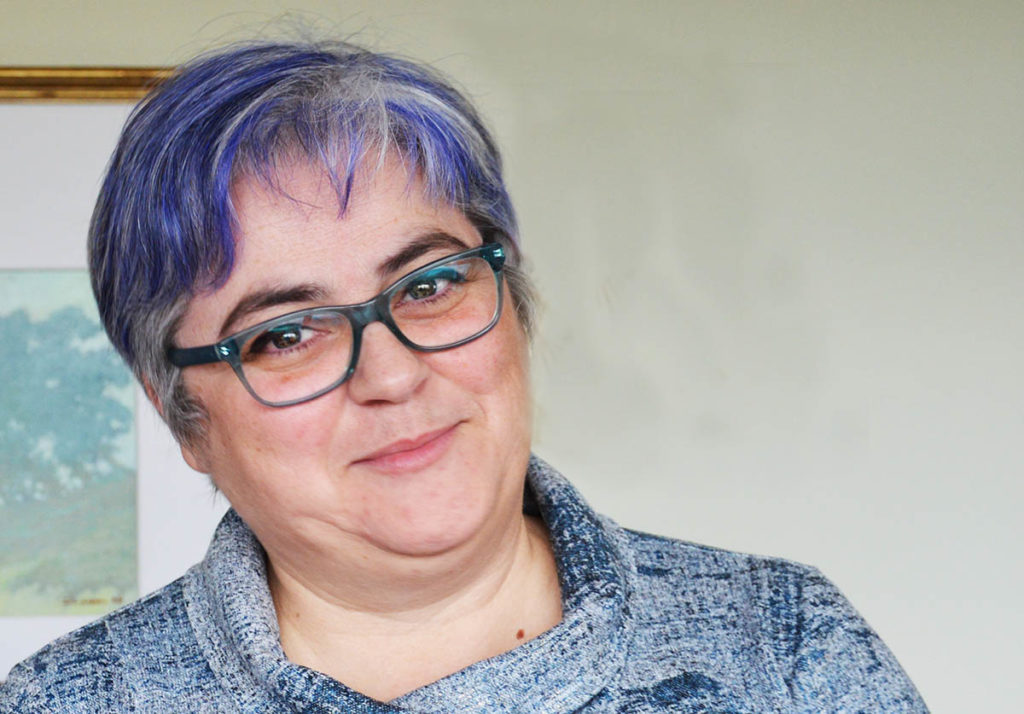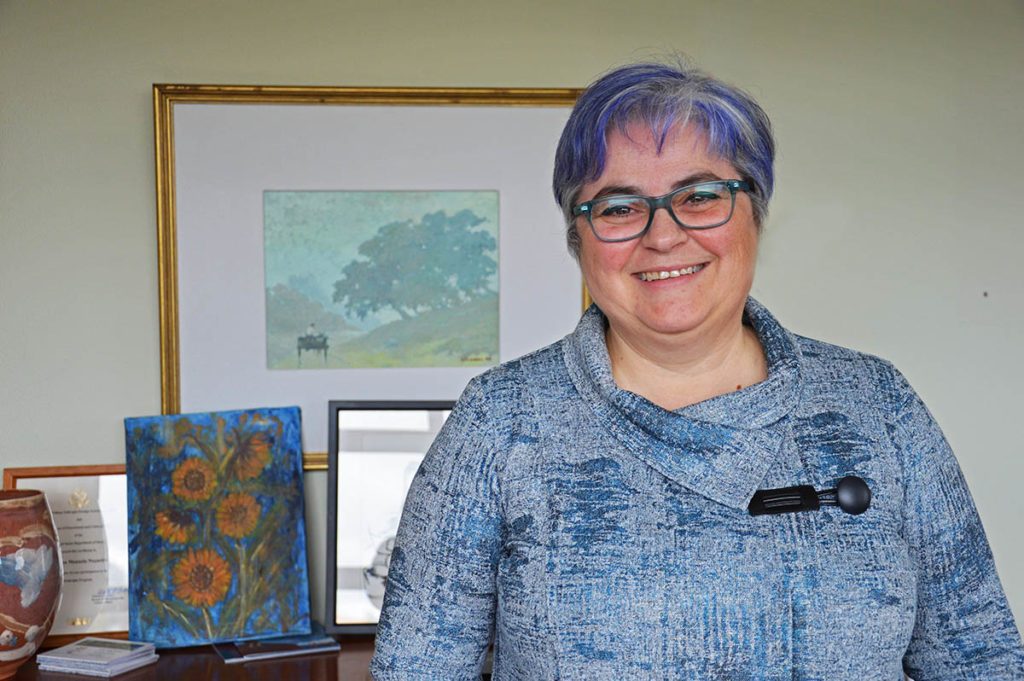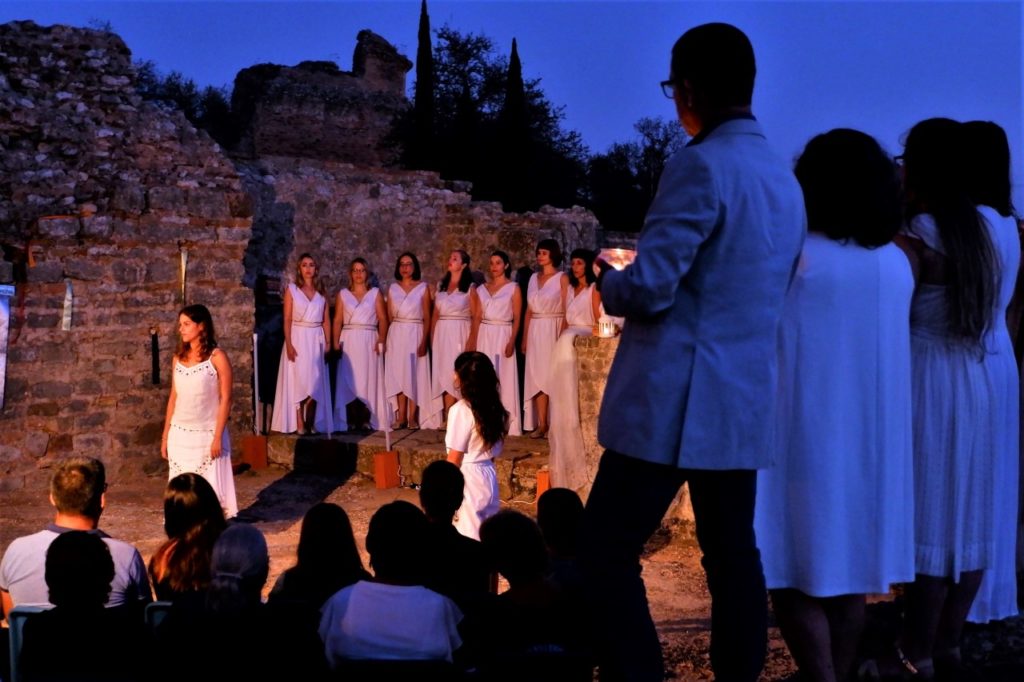Creating a plan to bring young people closer to the Algarve's museums and monuments is one of the (many) projects that Adriana Freire Nogueira, the new regional director of Culture, intends to implement.
“There is the idea that young people are not, on their own initiative, frequenters of monuments, museums, palaces. They will visit with the teachers and their schools, but there is no plan in these schools to foster the connection to heritage, as there is, for example, in relation to cinema and reading», said Adriana Nogueira to Sul Informação, in his first formal interview since taking up his new post on 15 December.
«I just came from the Regional Delegation for Education and I know that there is a program, from the General Directorates of Cultural Heritage and Education, which is called “My School adopts a Museum, Palace or Monument”, but which does not include us , Algarve».
«Well, I think we have to create something here in the Algarve, but something that is more permanent, that is not just a contest. There was even one contest, the “From my window, you can see a monument”. We have to promote a regional plan, more adapted to our reality, so that the connection of schools and young people to heritage is closer,” he added.
Adriana Nogueira says she has already talked about the matter “with the regional delegate for Education, so let's see what this will do”.
The regional director of Culture admits that it could be “an idea that surpasses me, it will probably have to go to higher authorization”. However, he asks, with a laugh: “if I don't have ideas now, when will I have them?”.
Youth and its relationship with culture, heritage, creation and the arts are, in fact, areas in which the new responsible says she wants to invest strongly.
And, above all, it is interested in supporting the internationalization of young creators. Despite being in the position for a short time, Adriana Nogueira knows that the budget of the Regional Directorate of Culture it's not big, nor is it elastic. Therefore, he warns that such support for internationalization will have "to do with whatever money there is". Wherever you go, he stresses, “there has to be support for internationalization, for the international projection of our artists, especially young people, to bring out the good things that are done here. No matter how little money there is, we have to give a sign that we are thinking about it».
Admitting that, with just over a month in the position, she still hasn't had "much time to think" about all her priorities, Adriana Nogueira says that "one of the things I'd like to do" is "knowing reality, supporting me in municipalities'.
For this purpose, he intends to meet «with the associations that are in the field working on culture, to know their realities and understand what their needs are, in order to define how the Regional Directorate of Culture can better support them. We don't have a lot of money, so I have to know these needs so that we can define the support».
Also a priority for the new responsible is to increase people's access to Culture and Heritage.
In terms of physical accessibility, he highlights the “work we are doing on our monuments – Fortress of Sagres, Ermida de Guadalupe and Roman Ruins of Milreu – to adapt them for people with reduced mobility. In Guadeloupe, we will even have sign language in what is being projected and braille».
But it is also necessary to eliminate barriers with regard to “intellectual accessibility”. And what is an intellectual barrier? «It is not knowledge». Therefore, defends the regional director, it is necessary to continue to provide people with access to cultural heritage and offer, «for example, through DiVaM, which is a program that seeks to make monuments more dynamic, so that there is more fun, but also training. With that access, we are giving people an openness to culture. And that is an intellectual accessibility».
Then there is also the social accessibility: “people don't go to cultural initiatives or museums, because they think it's not for them. We have to break down the barriers that still exist in our society. We have to explain this possibility that everyone has to access culture. I remember that, as a teacher, I took my students to the Museum of Faro and, in 40, only about 10 already knew him». And this among university students.
In this regard, Adriana Nogueira revealed, in her interview with Sul Informação, that the Regional Directorate of Culture of the Algarve will become a partner of Acesso Cultura. «Dália Paulo, president of Acesso Cultura, suggested that the debate sessions take place here at the Regional Directorate, since in other regions this is how it happens and that is what will happen. The next session will take place on February 19th».
And it is also in this area of accessibility that Adriana Freire Nogueira intends to bet, when she says that “I would like the appearance of Groups of Friends of Museums, Monuments and Palaces to be more widespread”. In the Algarve, he recalls, there are already two of these groups working very well, at the Museu de Portimão and at the Museu do Trajo, in São Brás de Alportel.
«It will not be the Regional Directorate of Culture that will create these groups of friends, it just wants to facilitate their creation. For example, in Estoi, why not create a group of friends from the Roman Ruins of Milreu?” he challenges.
“These groups are fundamental, because if people are more involved with the museums and monuments that are close to their homes, they will also become more dynamic with schools, children, and friends. This is a network. And if today they go to his museum to see an exhibition, the next day they go somewhere else, outside their homeland. Friends of museums or monuments are not limited to what they belong to».
Adriana Nogueira stresses that she doesn't have the “power to create” these groups of friends, “but if she can influence it, all the better! In the conversations I will have with the mayors and associations, one of the subjects that will be on the agenda will be that of encouraging people to create groups of friends from museums and monuments».
And, since we talked about DiVaM, the Monuments Disclosure and Valorization program of the Algarve under the supervision of the Regional Directorate, its responsible said that this year the project «continues to be handed over to Raquel Roxo and is advancing without major changes. I wasn't able to delay the process to learn more about things, so this year the logic is the same, which doesn't mean it will be the same for the year. But that will also be Raquel who will see».
One of the problems with which the Regional Directorate of Culture of the Algarve has been struggling in recent years is with a staff that would even meet the needs…if it were filled, which it doesn't. And the difficulty of filling it out is “something that goes beyond the Regional Directorate. It's the fact that people don't want, for example, to go to work at the Sagres Fortress. We asked for mobility within the civil service, but the vacancies in Fortaleza were not filled. Now, with me, we were able to ask to open two more places (four had been requested, now there are six), for external people, through a contract of employment in public functions», explained Adriana Nogueira.
"We already have the budget for these six positions of technical assistants for the Fortress of Sagres, now it is up to the Ministry of Finance to authorize the tender," he added.
And because the amounts in the State Budget for Culture are not very large, the regional director emphasizes that it is necessary to “compete for projects, to obtain financing”.
At the moment, the Regional Directorate of Culture of the Algarve has "new applications", one of which has already been approved, either by CRESC Algarve 2020 or by the Foundation for Science and Technology (FCT). This is the long-awaited project «Balsa – Recovery and Dissemination of a Roman City in the Southwest Iberian – Cultural project for social cohesion and local sustainability», submitted in partnership with the University of Algarve.
This project, which will finally allow a deep intervention in the Roman ruins of Balsa, in the municipality of Tavira, namely with extensive and systematic archaeological excavations and possible acquisition of land for the State, was submitted through CCDR Algarve and already approved, this week passed by the FCT.
Then, revealed Adriana Nogueira, there is the «joint application to the European Commission, led by the Royal Palace of Vienna, for the creation of a European Network of European Heritage Label sites, submitted on January 3rd», in the «Memory and Heritage thematic axis ». As a recent candidacy, it is still "under review". The Algarve is represented in this application by Fortaleza de Sagres.
There is also the «application to the INTERREG MED programme, in partnership with In Loco and certainly with other partners, for the promotion and enhancement of cultural heritage, in an accessible and inclusive way». The first phase has already been submitted.
With the «project already done», there is now «another application in preparation, in partnership with the University of the Algarve, worth almost 900 thousand euros, called “Research and dissemination of the Historical Center of Cacela-a-Velha” and in a multiannual project'.
"Our funding is short, so it is important to be present with these applications," he stressed.
After about a month and a half of work, Adriana Freire Nogueira makes a point of stressing that «I came here to meet, in the Regional Directorate of Culture, a group of very knowledgeable people, who know what to do, and this gives me great confidence . A director is important for decision-making, but the practical day-to-day functioning is very well delivered».
“What people often see of the Regional Directorate is the presence of its director here and there. But the great work, the least visible, is done by the people who are here, in safeguarding and re-qualifying the cultural heritage, mobile and immobile and immaterial», he concludes.





















Comments